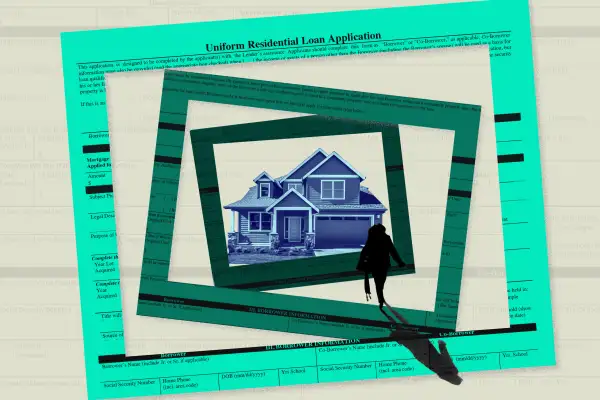Qualifying for a Mortgage Is Surprisingly Difficult Right Now

Despite historically low mortgage rates and surging home loan originations, for many Americans it may be near impossible to qualify for a mortgage right now.
The Urban Institute released its Housing Credit Availability Index for the third quarter of 2020 today and shows lenders’ tolerance for risk is at the lowest level in at least two decades.
The index decreased by 0.1 percentage points to just under 5%, reaching the lowest point since 1999, as far back as the index measures. That means that while highly qualified borrowers are able to take out loans, people with low FICO scores or in need of riskier products are having trouble getting access to credit.
The median FICO for purchase loans is 40 points higher than the pre-housing crisis level of around 700.
According to Laurie Goodman, co-director of the Housing Finance Policy Center at the Urban Institute, credit requirements to qualify for a mortgage had already been getting stricter prior to the beginning of the COVID-19 pandemic. Credit has tightened even further due to the devastating economic impact of the virus.
“With the huge volume of refinance loans, originators have less time to work with first-time homebuyers with more marginal credit,” said Goodman. “The result: many renters who could qualify for a mortgage, don’t have the high credit profile required to buy a home at today’s low rates. Thus, they miss out on homeownership, which is the single best way to build wealth.”
Record low mortgage rates have led to a dramatic increase in both purchase and refinance loans.
That high demand for loan products has overwhelmed many lenders, especially during the first half of the year when the pandemic hit. As a consequence, many lenders were increasing their minimum required credit scores as a means of slowing down the flow of applications.
Since then, a new impediment has arisen for those without pristine credit. The economic recovery initially experienced a rebound during late spring and early summer, but a resurgence in COVID-19 infections has caused many industries, particularly in the hospitality and leisure markets, to scale back operations or close down completely.
As a result, many lenders are restricted access to credit even more. For borrowers who have credit scores on the lower end of the scale, it means they aren’t benefiting from historically low mortgage rates.
The index measures the percentage of owner-occupied purchased loans that are likely to default — meaning going more than 90 days late on their mortgage payments.
The lower the index, the higher the credit requirements imposed by lenders and the harder it is to get a loan. When the index is higher, lenders are more inclined to accept defaults and are taking more risks, making it easier to get a loan. The index peaked at 16.943 in the run-up to the housing crisis.
According to the HCAI, credit availability declined for all loan types between the second and third quarters of 2020. In the government-sponsored sector — loans purchased by Fannie Mae and Freddie Mac — credit availability decreased from 2.7% during the second quarter to 2.5%. Other government loans — VA, USDA, FHA — declined to 10.4%. Private label and portfolio loans fell to 2.8%.
Even if credit availability doubled, the rate would still be well below what it was prior to the 2008 recession. So there's room for lenders to relax restrictions without resorting to the kind of lax lending that led to the housing bubble and collapse.
The credit tightening trend appears to have continued into the 4th quarter of 2020 as well. Information from the Mortgage Bankers Association’s Mortgage Credit Availability Index shows that credit availability decreased during the month of December.
MCAI, which is benchmarked to a reading of 100 set in March 2012, decreased by 0.10 percent to 122.1.
More from Money:
Becoming a Homeowner Isn't Easy. Here's How Three Black Families Did It
Mortgage Rates Are at Record Lows. But What Does It Take to Actually Qualify for a 3% Loan?
9 Steps to Take Now That Will Prepare You for Buying a Home in 2021

